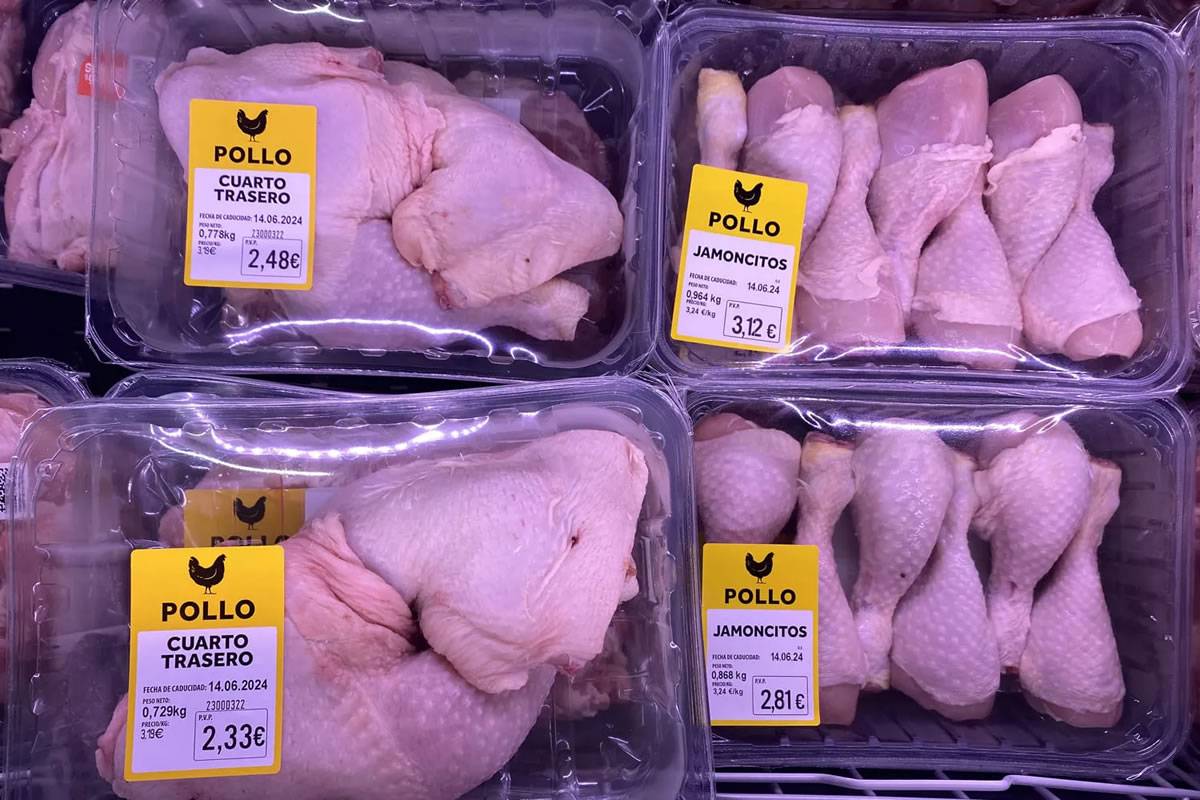Lidl chicken found to be contaminated with listeria, diarrheal pathogens and other bacteria
- 19-06-2024
- National
- Canarian Weekly
- Photo Credit: Contaminacion Global
A recent scientific analysis has revealed alarming levels of contamination in chicken products sold at Lidl supermarkets across several European countries, including Spain, Germany, Italy, Great Britain, and Poland. The findings have raised significant public health concerns, particularly in Spain, including the Canary Islands, where the contamination levels are the highest.
Dr. Imke Lührs, an internal medicine specialist and former advisor to the German Federal Parliament (Bundestag), expressed strong caution against purchasing Lidl chicken products after reviewing the study's results. "I would not advise my patients to buy these chicken products from Lidl," Dr. Lührs stated emphatically.
The analysis examined 142 trays of chicken from Lidl supermarkets, including chicken wings, drumsticks, thighs, carcasses, and breasts. Conducted in a laboratory accredited by the German Accreditation Body (Dakks), the study concluded that 71% of the samples were contaminated with antibiotic-resistant bacteria.
In Spain, chicken products from Lidl in Madrid, Valencia, and Barcelona showed particularly concerning results. The study, published by the Animal Welfare Observatory, found that 38% of the chicken contained listeria, while 83% harboured diarrheal pathogens such as Escherichia coli and Campylobacter. These figures are notably higher compared to a third of the products contaminated in Germany and 58% in the United Kingdom.
Public Health Alert
The Animal Welfare Observatory has reported these findings to the Ministries of Consumer Affairs, Social Affairs and Agenda 2030, and the Ministry of Agriculture, Fisheries, and Food. They are calling for an investigation into the presence of antibiotic-resistant germs and other pathogens in Lidl's chicken products, urging for a public report on the matter.
These bacteria can cause severe health issues, including urinary tract infections, pneumonia, septicaemia, and other conditions. Antibiotic resistance is one of the top ten leading causes of death globally, with around 3,000 deaths annually in Spain alone, according to the Ministry of Health.
Transmission of Antibiotic-Resistant Bacteria
Eduardo Costas, a professor of genetics at the University of Madrid, explained that antibiotic-resistant bacteria can reach humans through various routes: direct consumption of contaminated products or through water supplies contaminated by livestock effluents. He warned that these pathogens can spread from farms to the environment, contaminating water bodies, soil, and vegetables.
Costas emphasised the challenges in maintaining strict hygiene practices in kitchens, noting common lapses such as inadequate cleaning of utensils or insufficient cooking of meat. These factors make the presence of such bacteria in Lidl's chicken a significant risk to consumers.

Specific Pathogens Detected
The analysis highlighted several diarrheal pathogens in Lidl's chicken products in Spain. Notably, 83% of the samples contained Campylobacter, which can cause symptoms ranging from asymptomatic infection to severe diarrhoea, fever, and, in extreme cases, joint inflammation or Guillain-Barré syndrome.
Additionally, 38% of the samples were found to contain Listeria monocytogenes. Listeria infections can lead to serious complications for unborn babies, including miscarriages, and can cause severe illness in people with weakened immune systems. The same percentage of samples also tested positive for Escherichia coli, which can lead to diarrhoea, urinary tract infections, and potentially life-threatening blood poisoning or other organ diseases.
A Serious Health Threat
"The Lidl chicken study shows that the meat is contaminated with numerous potential pathogens," warned Dr. Lührs. She explained that while these pathogens may not immediately cause illness, they pose a risk of transmission to humans if the meat is not properly prepared. Under unfortunate circumstances, such as pre-existing illnesses, antibiotic use, injuries, or surgeries, these germs could become a serious health threat.
The findings highlight the urgent need for rigorous monitoring and improved food safety standards to protect public health from contaminated meat products.
Other articles that may interest you...
Trending
Most Read Articles
Featured Videos
TributoFest: Michael Buble promo 14.02.2026
- 30-01-2026
TEAs 2025 Highlights
- 17-11-2025



























































